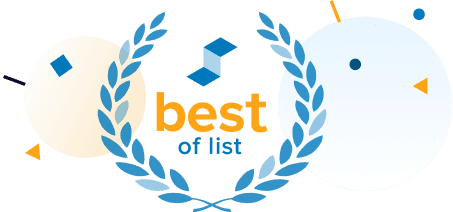The Best Shared Equity Alternatives to a Reverse Mortgage
May 2024
Shared equity agreements, also known as home equity investments, provide a debt-free alternative to reverse mortgages. Here is our list of the best home equity investments available.

SuperMoney may receive compensation from some or all of the companies featured, and the order of results are influenced by advertising bids, with exception for mortgage and home lending related products. Learn more
Are you thinking about getting a reverse mortgage? If so, consider getting a quote for a shared equity agreement before you make a decision.
Like reverse mortgages, shared equity agreements allow you to unlock your home equity - but without charging interest, mortgage insurance premiums, or monthly service fees. They are also easier to qualify for than reverse mortgages because they don't have age restrictions or the same stringent LTV or residency requirements.
We recommend you apply with the following investors and see which one offers the best terms. It is free and won't hurt your credit.
I am looking for a reverse mortgage, where can I get one?
In some cases, reverse mortgages are the best option available to homeowners. For instance, if you are over 62, own your home outright (or close enough), and you need money for daily expenses, a reverse mortgage could a be a good choice. However, getting a reverse mortgage is not a decision you want to take lightly. Choosing the right lender is important. SuperMoney's reverse mortgage comparison tools can help you compare lenders.
How do shared equity agreements work?
I am looking for a reverse mortgage, where can I get one?
In some cases, reverse mortgages are the best option available to homeowners. For instance, if you are over 62, own your home outright (or close enough), and you need money for daily expenses, a reverse mortgage could a be a good choice. However, getting a reverse mortgage is not a decision you want to take lightly. Choosing the right lender is important. SuperMoney's reverse mortgage comparison tools can help you compare lenders.
Shared equity agreements, sometimes known as home equity investments, allow homeowners to cash out on their equity without getting into debt. It works like this. Investors give homeowners a lump sum in exchange for a share in the future value of their homes. When the homes are sold (or when the contract term ends), the investors receive their share from the sale. If the value of the house increases, so does the amount the investor receives. If the house drops in value, the investor also shares in the loss.
How do reverse mortgages compare to shared equity agreements?
A reverse mortgage can be a good option if you meet the age requirement, own your home outright, and don't have any better way to raise money to pay for daily expenses. However, a shared equity alternative may be a better alternative if you have a high debt-to-income ratio, can't afford additional monthly payments, or don't meet the eligebility requirements of a reverse mortgage. Note that reverse mortgages require you to first use the money you receive to pay off your mortgage. You can then keep whatever is left.
Shared equity agreements, also known as home equity investments, are not technically loans. They won't increase your debt, don't charge interest and there aren't any monthly payments to worry about. They are also relatively easy to qualiy for. For instance, you can qualify for a shared equity agreement even if you have a high debt-to-income ratio and a modest loan-to-value ratio.
A shared equity agreement can be a good option if you:
- need cash but don't want a monthly payment
- have high-interest debt to pay off
- need to finance a home improvement or want to start a business
Shared equity agreements are an attractive product for homeowners who want to avoid additional monthly payments and have an immediate need for cash.
What are the pros and cons of shared equity agreements?
Reverse mortgages and shared equity agreements have their advantages and drawbacks. The best choice for you will depend on what your financial circumstances and objectives are. Here is a list of the pros and cons to keep in mind if you're considering a shared equity agreement as an alternative to a home equity loan.
How do I get started?
If you think a home equity investment may be a good choice for you, get quotes from all the home equity investors listed above.
It only takes a couple of minutes to find out if you prequalify and discover how much you can get for a share in your home's equity. There are no strings attached, and it won't hurt your credit score. You may be surprised by how well they compare to reverse mortgages, home equity lines of credit, and other traditional home equity financing options.
About the Author

SuperMoney
SuperMoney is the most comprehensive financial services comparison site around. We have published hundreds of personal finance articles and provide detailed reviews on thousands of financial products and services. Our unbiased advice and free comparison tools help consumers make smart financial decisions based on hard data, not marketing gimmicks.